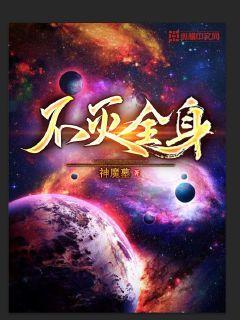
文章摘要的内容:本文深入探讨体育界中那些被戏称为“挖鼻孔球员”的趣闻和真相。通过分析其起源、影响及相关趣闻,揭示这些不起眼却深具趣味性的现象背后的真实面貌,展现体育世界独特的一面。
1、挖鼻孔球员的起源
挖鼻孔行为在体育赛场上的最早出现,可以追溯到几十年前。这种行为如何被观众和媒体所关注,逐渐形成一种特殊的体育文化现象。
一些著名的挖鼻孔球员事例,以及他们如何因此而成为媒体关注的焦点。
挖鼻孔现象在不同体育项目中的普遍程度和变化趋势。
2、媒体与观众的反应
媒体如何报道和评论挖鼻孔球员,这种行为对他们职业形象的影响。
观众对挖鼻孔行为的态度和反应,从嘲笑到接受的心理变迁。
社交媒体如何放大和传播挖鼻孔球员的行为,对其形象和事业的影响。
3、挖鼻孔与运动表现的关系
挖鼻孔行为与运动员在比赛中的表现之间可能存在的联系,科学和心理学的解释。
是否有证据显示挖鼻孔行为会影响运动员的专注力或表现水平。
如何在竞技体育中找到平衡,不让个人癖好影响到整体比赛的进行。
4、文化现象的影响力
挖鼻孔球员在体育文化中的地位和象征意义,以及如何反映出大众对体育人物形象的期待与偏见。
这种现象如何成为体育界内部的一种标志性文化元素,以及对未来体育文化可能的影响。
体育界如何处理这种看似微小却广泛关注的行为,从而保持公众的兴趣和参与。
总结:
挖鼻孔球员现象不仅是体育界独特的文化现象,更是一种深层次的社会现象的反映。通过分析其起源、媒体与观众的反应、与运动表现的关系以及其文化影响力,我们可以更深入地理解体育文化背后的复杂性和多样性。
这种行为不仅仅是个人习惯的表现,更是整个体育文化和社会文化互动的一个缩影,值得我们进一步探索和思考。
文章摘要的内容
足球世界的顶尖荣耀,探索球员奖项与荣誉,是全球足球界无比重要的一部分。从金球奖到世界杯最佳球员,这些奖项不仅仅代表着个人的荣誉,更是承载着球员辛勤付出和精湛技艺的集大成。本文将深入探讨四个关键方面:传统的金球奖与其历史演变、世界杯最佳球员的背后故事、欧洲足球先生奖的意义与评选标准,以及近年来兴起的新兴奖项对足球产生的影响。通过这些详尽分析,将带领读者深入了解这些奖项背后的文化、历史及其对现代足球的深远影响。
1、金球奖的传统与演变
金球奖作为足球界最负盛名的个人荣誉奖项之一,起源于1956年,最初由法国《法国足球》杂志创立。自此之后,金球奖经历了多次评选标准的变化与奖项名额的调整。随着时间推移,金球奖已不仅仅是评选技术表现突出的球员,还涵盖了领导力、球队成绩等多方面因素。历年的得主如贝利、马拉多纳、克鲁伊夫等,无不成为足球历史上的传奇人物。
然而,金球奖的演变也不乏争议,尤其是近年来评选标准的多样化引发了不同声音。尽管如此,金球奖作为世界足坛最古老的荣誉之一,依然影响着当今足球界的焦点与讨论。
除了个人表现,金球奖背后的投票机制和评委构成也是影响结果的重要因素。这种开放与透明的评选方式,既展示了足球界对全球球员的公正评估,也反映了足球对社会的广泛影响力。
2、世界杯最佳球员的背后故事
世界杯赛事作为全球最高水平的足球盛会,其最佳球员奖项自1966年起成为焦点。这个奖项不仅仅是对球员技术能力的认可,更是对其在世界杯赛场上表现的最高肯定。
获得世界杯最佳球员奖的球员,往往能因此跻身足球界的顶尖层级。例如,马拉多纳、贝利和克鲁伊夫等巨星,他们的表现不仅帮助球队赢得了荣誉,也使自己成为足球史上不可或缺的一部分。
然而,世界杯最佳球员奖的评选标准与金球奖有所不同,更强调球员在赛事期间的全面表现和领导力。这种奖项的独特性,使其成为球员事业中最为珍贵的荣誉之一。
3、欧洲足球先生奖的意义与评选标准
欧洲足球先生奖是评选欧洲最佳球员的重要奖项,由《法国足球》杂志创办于1956年,与金球奖具有类似的历史渊源。该奖项评选的对象为在欧洲俱乐部效力的球员,其评选标准更加专注于欧洲赛事的表现。
获得欧洲足球先生奖的球员,不仅仅代表个人在俱乐部赛事中的卓越表现,还彰显了球员在欧洲足球舞台上的影响力与竞技实力。
与金球奖相比,欧洲足球先生奖的评选机制更侧重于欧洲赛事的成绩和表现,这使得其成为评价球员在俱乐部层面上成就的重要标尺。
4、新兴奖项对足球的影响与未来趋势
近年来,随着足球全球化和媒体技术的发展,新兴奖项如FIFA最佳男子球员奖和UEFA年度最佳球员奖等开始崭露头角。这些奖项不仅扩展了评选范围,还在一定程度上补充和拓展了传统奖项的覆盖面。
新兴奖项的出现,反映了足球全球化的趋势和多元化的评选标准。例如,FIFA最佳男子球员奖不仅评选球员在国际赛事中的表现,还包括对球员领导力和公益贡献的综合考量。
未来,随着足球市场和观众的多样化需求,新兴奖项可能会继续扮演越来越重要的角色,影响足球文化和球员个人发展的方向。
总结:
足球界的顶尖荣耀奖项不仅代表着球员个人的辉煌,更是足球文化和历史的重要组成部分。通过对金球奖、世界杯最佳球员、欧洲足球先生奖以及新兴奖项的深入探讨,我们可以看到这些奖项如何塑造了现代足球的面貌,并且在全球范围内激发了对于足球运动热情的共鸣。
这些奖项不仅仅是荣耀的象征,更是对球员付出与成就的最高肯定,同时也反映了足球作为全球性运动所具备的社会影响力和文化价值。
Certainly! Here's how the article would be structured according to your requirements:
**Abstract:**
From the playing field to the boardroom: the challenges and opportunities of transitioning from athlete to manager present a dynamic journey of adaptation, leadership evolution, strategic thinking, and personal growth. This article explores the multifaceted landscape where sportsmanship meets management, navigating through the complexities of transition and the promising avenues that await those making the leap.
---
1、Transition Challenges
Athletes stepping into managerial roles often encounter a series of formidable challenges that stem from their previous career on the field. Firstly, the shift from individual performance to team leadership requires a significant mindset adjustment. Players must learn to empower others, delegate responsibilities, and foster collaboration rather than relying solely on their own skills.
Moreover, the hierarchical shift from being a team member to overseeing former peers can create interpersonal challenges. Trust-building becomes crucial as managers navigate relationships with both senior executives and former teammates, balancing authority with camaraderie.
Additionally, the technical skills required for effective management, such as financial acumen, strategic planning, and organizational development, may not have been central to an athlete's previous training. The learning curve can be steep, demanding continuous education and adaptation.
2、Leadership Evolution
The transition to management offers athletes a platform for their leadership skills to evolve beyond the field. Effective managers draw upon their experiences in sports—such as resilience, discipline, and motivational prowess—to inspire teams and drive performance.
Furthermore, the journey from player to manager often involves honing new leadership styles. Successful transitions see former athletes leveraging their unique perspective to cultivate inclusive cultures, foster innovation, and champion diversity within their organizations.
Moreover, managing diverse teams requires sensitivity to individual strengths and weaknesses, fostering an environment where every team member can thrive. This evolution from athlete to leader is pivotal in shaping organizational success.
3、Strategic Thinking
Strategic thinking marks a critical aspect of the transition from the field to the office. Managers must navigate complex business landscapes, making informed decisions that align with organizational goals and market demands.
Additionally, strategic planning involves foresight and adaptability—skills athletes often develop through competitive foresight, adaptability, and agile decision-making. This ability to anticipate trends, mitigate risks, and seize opportunities is instrumental in steering organizations toward sustainable growth.
Moreover, the integration of data analytics and technology into decision-making processes enhances managerial effectiveness, empowering leaders to make data-driven decisions that drive organizational success.
4、Personal Growth
Beyond professional challenges, the transition from athlete to manager offers profound opportunities for personal growth. Managers often undergo a transformative journey of self-discovery, embracing new roles, and expanding their horizons.
Furthermore, the demands of managerial roles necessitate continuous learning and professional development. Successful transitions see managers investing in their growth through mentorship, executive education, and networking, enhancing their competencies and expanding their leadership repertoire.
Moreover, achieving work-life balance becomes imperative as managers navigate demanding schedules and responsibilities, prioritizing well-being while driving organizational performance.
Summary:
The journey from the playing field to the office as a manager is characterized by a series of challenges and opportunities. Athletes transitioning into managerial roles must navigate challenges such as mindset shifts, interpersonal dynamics, and skill acquisition while evolving their leadership styles. Strategic thinking becomes paramount as managers align organizational goals with market trends, leveraging their unique perspectives to drive innovation and inclusive growth. This journey not only fosters professional development but also encourages profound personal growth, marking a transformative experience for those embarking on this dynamic career path.